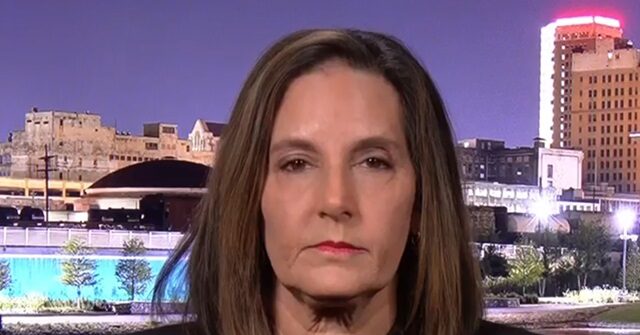On a recent episode of MSNBC’s “The Beat,” legal expert and contributor Joyce Vance expressed serious concerns regarding President-elect Donald Trump’s rhetoric surrounding potential pardons for the January 6 defendants. She argued that such discussions serve as a dangerous signal to his supporters, implying that they should resort to violence and criminal activities if his political aspirations are threatened. Vance’s commentary suggests that Trump’s messaging is not an isolated remark but a strategic communication aimed at rallying his base to embrace extreme measures in defense of his political ambitions.
Political commentator Bill Kristol added to this discourse by highlighting the implications of political figures aligning themselves with the January 6 events. He pointed out JD Vance’s position against former Vice President Mike Pence’s actions on that day, noting that Vance has previously stated he would not have rejected the electoral votes. Kristol also referenced the House Speaker’s efforts to contest the electors on January 6, suggesting a broader complicity among certain Republican leaders. He expressed disbelief that, years after the Capitol riots, the political landscape is still significantly influenced by individuals who supported or participated in attempts to overturn the election results.
Kristol’s remarks illustrate a disturbing trend where the ideology endorsing the January 6 insurrection is finding a foothold in mainstream politics. He also remarked on the appointment of Kash Patel, who he claims played a role in the internal government plotting that preceded the Capitol attack. This concern extends not only to the implications of individual appointments but also to the overarching narrative that seems to normalize or justify the violence associated with January 6. Kristol’s commentary thus frames the ongoing political dynamics as deeply intertwined with the events that threatened the democratic process in the United States.
Vance’s take on Trump’s messaging highlights its potential ramifications for both supporters and opponents alike. By suggesting that Trump tells his followers to “support me at all costs,” she underscores a dangerous precedent where loyalty to a political figure supersedes adherence to law and order. This notion evokes a chilling reminder of how political loyalty can be manipulated to incite violent actions, challenging the foundations of democratic engagement and civil discourse. Vance articulated her fears about this development, indicating that the acceptance of such rhetoric in political circles is unsettling and warrants serious attention.
Further analysis reveals the dichotomy at play: the supporters of Trump may interpret his calls for loyalty as a green light for insurrection or disorderly conduct under the guise of political advocacy. This creates a volatile environment where accountability is eroded and extremist behavior is tacitly encouraged. The implications of this messaging extend beyond individual actions, suggesting a wider normalization of violence in American politics, reorienting the conversation around citizenship, loyalty, and the responsibilities that come with political engagement.
In conclusion, the discussions surrounding Trump’s approach to the January 6 defendants reflect a growing concern about the moral and ethical implications of current Republican leadership. The conversations spearheaded by Vance and Kristol reveal the unsettling reality that endorsements of violence are manifesting within mainstream politics. As these narratives gain traction, they pose a significant threat to the stability of democratic processes and principles, necessitating a critical reevaluation of how political figures communicate during uncertain times. The potential for endorsing violence as a political tool raises alarms about the future of political discourse in the country and the risks associated with loyalty to individuals over adherence to the rule of law.

